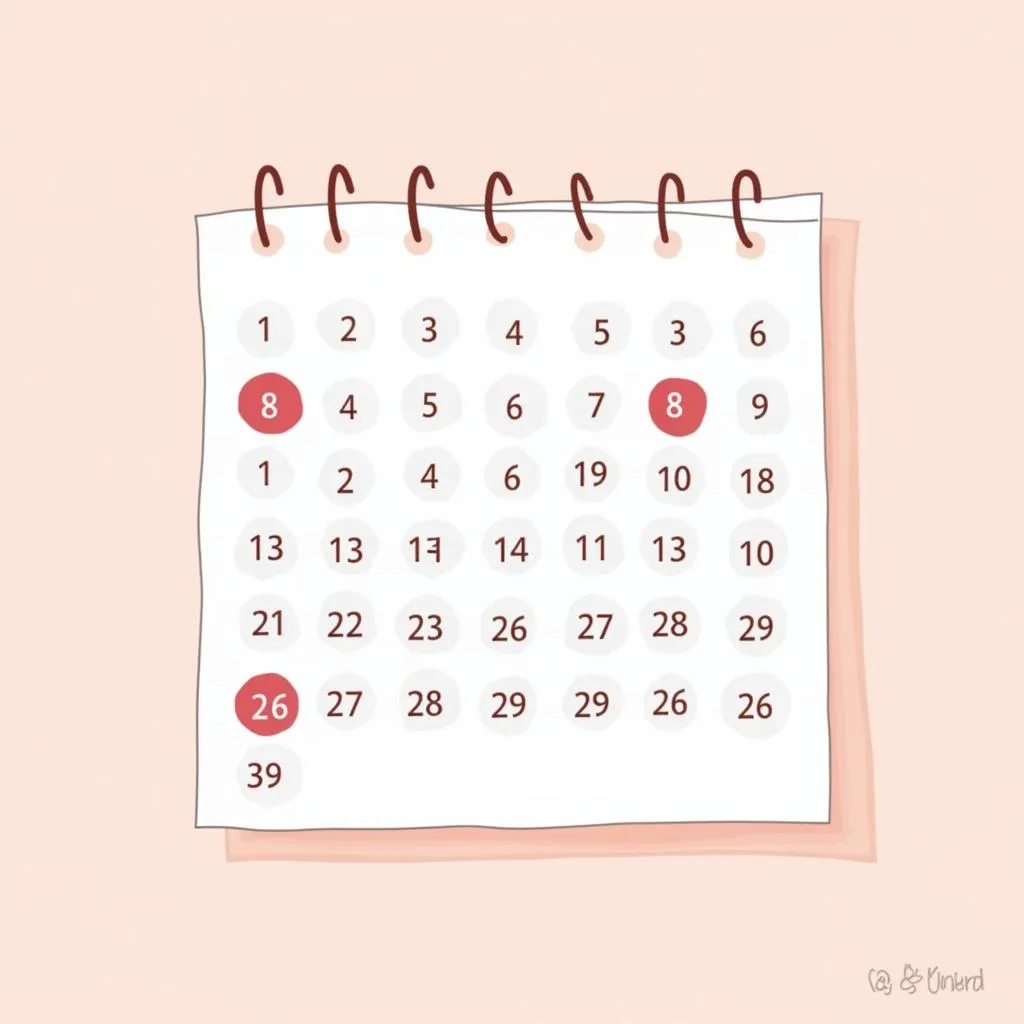Understanding Your Menstrual Cycle: The Importance of Accurate Tracking
Understanding your menstrual cycle is key to managing your health and well-being. While many period tracking apps provide estimated dates for your cycle, understanding how to highlight your period based on the actual date is crucial for accurate tracking and analysis. This article will delve into the importance of marking your period based on actual dates, discuss methods for accurate tracking, and highlight the benefits of this approach.
Why Accuracy Matters in Period Tracking
Tracking your period based on actual dates offers several benefits:
- Improved Cycle Understanding: By marking the first and last day of your period accurately, you can gain a more precise understanding of your cycle length and variations.
- Identifying Irregularities: Accurate tracking helps identify irregularities like unusually long or short cycles, missed periods, or prolonged bleeding. These can be early indicators of underlying health conditions.
- Fertility Awareness: For those trying to conceive, pinpointing ovulation is crucial. Accurate period tracking helps determine your fertile window more effectively.
- Effective Contraception: Some contraceptive methods rely on cycle tracking. Accurate data is essential for optimal effectiveness.
- Health Monitoring: Changes in your cycle can be a sign of stress, dietary changes, or other health factors. Detailed tracking provides valuable insights for you and your healthcare provider.
Methods for Accurate Period Tracking
Several methods help ensure accuracy when highlighting your period based on the actual date:
- Calendar Marking: A simple calendar, either physical or digital, can be used. Mark the first day of your period (usually the day you start bleeding) and continue marking each day until it ends.
- Period Tracking Apps: Numerous apps are designed specifically for menstrual cycle tracking. Input the start and end date of your period, and the app will calculate cycle length, predict future periods, and offer insights based on your data.
- Journaling: Maintain a dedicated journal or notebook to record your period dates, flow, and any symptoms experienced. This method allows for personalized notes and observations.
Tips for Consistent and Reliable Tracking
To make the most of period tracking:
- Be Consistent: Mark your period every single month, even if you experience irregularities.
- Note Flow Variations: Use descriptors (light, medium, heavy) or symbols to indicate flow intensity on different days.
- Record Symptoms: Log any physical or emotional symptoms you experience throughout your cycle.
- Track Other Factors: Consider factors like medication, stress levels, sleep patterns, and exercise routines, as these can influence your cycle.
Understanding the Limitations
While tracking based on the actual date is important, remember that:
- Cycles Can Fluctuate: Even with regular tracking, your cycle length can vary from month to month due to factors like stress or hormonal changes.
- Apps are Estimates: Period tracking apps provide predictions based on your data. Treat them as guides rather than definitive schedules.
- Consult Your Doctor: If you notice significant irregularities or concerning symptoms, consult a healthcare professional for proper diagnosis and treatment.
Conclusion
Highlighting your period based on the actual date is fundamental for accurate cycle tracking. This practice empowers you to understand your body better, identify potential health concerns, and make informed decisions regarding your reproductive health. Utilize calendars, apps, or journaling to track consistently, and consult a healthcare professional if you have any concerns. Remember, knowledge is power when it comes to managing your menstrual health.
FAQs
1. Is it normal for my cycle length to vary?
Yes, some variation in cycle length is normal. However, if you experience significant changes or irregularities, consult your doctor.
2. What information should I track besides my period dates?
Track flow intensity, any symptoms you experience (physical or emotional), and potential influencing factors like stress, sleep, or medication.
3. Can I rely solely on period tracking apps for accuracy?
While apps are helpful tools, treat their predictions as estimates and consult your doctor for any health concerns.
4. How can accurate period tracking help with fertility?
By understanding your cycle length and patterns, you can better predict your fertile window and optimize your chances of conception.
5. When should I consult a doctor about my period?
Consult a doctor if you experience severe pain, extremely heavy bleeding, missed periods, or any unusual or concerning symptoms.
Need Further Assistance?
If you have any questions or require personalized guidance regarding period tracking or women’s health, our team at BÓNG ĐÁ GOXPLORE is here to help. Contact us at 0372999996, email us at [email protected], or visit us at 236 Cầu Giấy, Hà Nội. Our dedicated customer support team is available 24/7 to address your queries.
